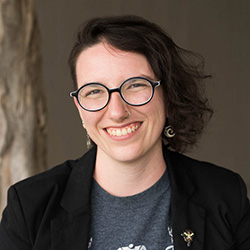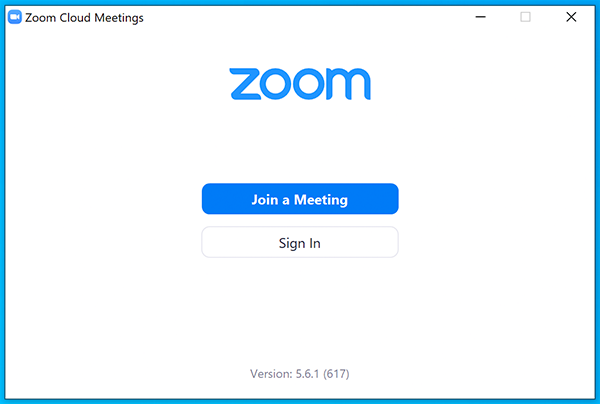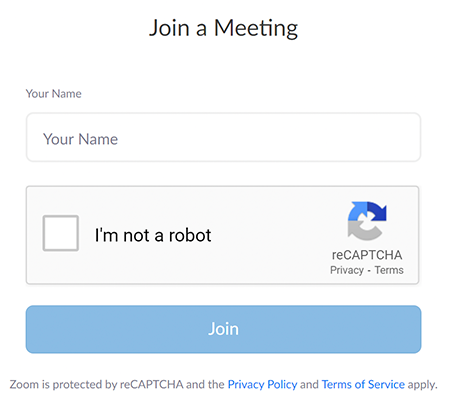ITRC: Overview of the Tire-Derived Chemicals 6PPD & 6PPD-quinone Training
Sponsored by: Interstate Technology and Regulatory Council
In October 2024, ITRC released the 6PPD & 6PPD-quinone Guidance Document to provide environmental professionals and communities with information about the current science and regulatory framework of 6PPD and 6PPD-quinone (6PPD-q). 6PPD-q is a contaminant of emerging concern and is a transformation product of the tire anti-degradant (6PPD), an antiozonant used in tires.
Join us for this ITRC training course to get a basic overview of the science and policy measures surrounding the Tire Anti-Degradants 6PPD and 6PPD-q. Attendees will gain insight into the current state of knowledge on topics such as: background and use of 6PPD in tires, toxicity in aquatic species and humans; occurrence, fate, and transport; measuring, mapping, and sampling; mitigation measures; and policy, regulations, and laws.
Currently, 6PPD is used in all tires and can contaminate stormwater and surface water anywhere tires are used. 6PPD-q was identified as a chemical fatal to coho salmon in 2020. Since that time, it has been documented as acutely toxic to multiple trout species found throughout the United States. 6PPD and 6PPD-q have been found in waterways, aquatic organisms, soils, air, and humans.
This training will introduce you to the ITRC 6PPD & 6PPD-quinone Guidance Document which provides more technical detail than can be covered in this training course
 Allan Chartrand (allanc50@comcast.net)
Allan Chartrand (allanc50@comcast.net)
Allan Chartrand is a career environmental scientist and toxicologist in Seattle, WA. His key areas of technical expertise relate to toxicology (especially ecotoxicology) and risk assessment, focusing on ecological and human health risk assessment, water quality and Clean Water Act (CWA) issues, and contaminated sediments. He is a former water quality scientist for Los Angeles Regional Water Quality Control Board in California, with expertise in NPDES water quality permitting, CWA compliance, and TMDLs. He completed his undergraduate work in biology at UC Berkeley, and graduate work in toxicology at UCLA. He was also Board-certified as a Diplomate by the American Board of Toxicology (DABT). He currently serves on the Board of Directors for Puget Soundkeepers Alliance as well as their Policy & Technical Committee.
 Rachael Lane, U.S. Geological Survey (rflane@usgs.gov)
Rachael Lane, U.S. Geological Survey (rflane@usgs.gov)
Dr. Rachael Lane is an analytical chemist with the U.S. Geological Survey (USGS). She serves as the research lead and principal investigator for one of the core laboratories of the Environmental Health Program in the USGS Ecosystem Mission Area. Rachael received a Ph.D. in Chemistry with honors from the University of Kansas and has dedicated her 20-year career to developing analytical methods to understand the occurrence, fate, and transport of emerging contaminants. Through nationwide research collaborations, her research has focused on understanding the effects of endocrine disrupting compounds, pharmaceuticals, antibiotics, pesticides, disinfection byproducts, and tire-related chemicals 6PPD and 6PPD-quinone on environmental and human health. Rachael has participated in the Interstate Technology and Regulatory Council (ITRC) Tire Anti-Degradants (6PPD) Team serving as the Co-Lead for the Environmental Assessment Strategies writing team subgroup and the Outreach Team subgroup.
 Ezra Miller, San Francisco Estuary Institute (ezram@sfei.org)
Ezra Miller, San Francisco Estuary Institute (ezram@sfei.org)
Dr. Ezra Miller is a Senior Scientist in the Clean Water Program at the San Francisco Estuary Institute, a nonprofit organization dedicated to providing scientific support to California agencies and organizations working on water quality protection, policy development, and environmental assessment. Ze leads the risk screening focus within the team of SFEI scientists investigating contaminants of emerging concern and microplastics in the San Francisco Bay and other regions of California. Ezra studies the environmental fate and effects of a broad range of contaminants, including per- and polyfluoroalkyl substances (PFAS), flame retardants, current-use pesticides, microplastics, and rubber and plastic additives including tire-derived contaminants like 6PPD, among others. Ze is particularly interested in using novel methods for contaminant identification, characterization, and monitoring prioritization to support management efforts and minimize impacts to aquatic ecosystems and human health. Ezra received a B.S. in Environmental Science and Chemistry from Warren Wilson College and a Ph.D. in Environmental Toxicology from the University of Wisconsin - Madison.
 Mark Schroeder, Integral (mschroeder@integral-corp.com)
Mark Schroeder, Integral (mschroeder@integral-corp.com)
Mark Schroeder is an engineer experienced in environmental remediation and the fate and transport of contaminants in groundwater, soil, and sediment. He has a B.S. degree in Environmental Engineering from Oregon State University and a M.S. degree in Environmental Engineering from the University of Colorado Boulder. He is a registered professional engineer in the State of Washington.
 Rhea Smith, WA Ecology (rhsm461@ecy.wa.gov)
Rhea Smith, WA Ecology (rhsm461@ecy.wa.gov)
Rhea Smith is the 6PPD monitoring lead within the Environmental Assessment Program’s Toxics Studies Unit. Rhea coordinated a technical advisory review and corresponding publication of a 6PPD legislative report outlining assessment and mitigation strategies. She supported the writing of the ITRC tire anti-degradant guidance document. Rhea has a background in developing and leading aquatic monitoring activities to understand human disturbance impacts on ecosystem processes and inform conservation and restoration actions.
 Katrina E. Varner, U.S. Environmental Protection Agency (Varner.Katrina@epa.gov)
Katrina E. Varner, U.S. Environmental Protection Agency (Varner.Katrina@epa.gov)
Katrina Varner is a primary research scientist at the National Exposure Research Laboratory in Las Vegas and has been conducting research for EPA since 1990. Her research centers on how to characterize pollutants and contaminants, and how they impact the health of humans and animals. Her primary research focus has evolved into method development and evaluation of monitoring parameters of contaminants and hazardous waste. Method and monitoring development involve the detection, speciation, and identification of organometallics, carbon-based nanomaterials and micro/nanoplastics in various media.
Moderator:
ITRC Training Program (itrc@itrcweb.org)
Webinar Slides and References:
Additional Resources:
- These materials will be available by
Thank you for participating in our webinar. We would like to receive any feedback you might have that would make this service more valuable.
Help & FAQs
- Frequently Asked Questions
- Content Questions?
Call ITRC Training Program at 202-266-4932 or itrc@itrcweb.org - Technical Problems?
Leave us a comment - Cancel Your Registration
- My Participation Records
- CEU Credits and PDHs
Zoom Resources
Before Webinar Day
This seminar will be delivered through Zoom. Participants are encouraged to update to the latest version of the Zoom application for the best experience.
If you are unable to install the Zoom application, most functions will be available if you join just using a modern web browser such as Chrome, Edge or Firefox. We strongly encourage you to run the Zoom Meeting Test prior to attending this webinar. Technical support on the day of the webinar will be very limited and subject to significant delays.
Backup Conference Call
If you cannot participate using online audio, you may join the optional call in line. After checking in for the live event using the instructions listed below, you will see several options to participate. Please click the links in option 4 to follow along by phone and obtain the call in number. If you cannot access the phone number, you may request the call in line from the event moderator in the Q&A or send an email to Jean Balent at balent.jean@epa.gov
Click on "Join Webinar" at the top of this screen, enter your exact first and last name as you registered and enter the number of people attending at your location (including yourself). You should then be taken to the Zoom meeting room. Join with Zoom Application: For those joining with the Zoom application, you may be prompted to sign with a zoom account or join as a guest without signing in.
If joining as a guest, you will be prompted to enter your name and email address. Remember your name, image, video or voice may be visible to others in the live event. When done, click "Join" When it is time for the live event to start, the meeting host will admit you to the live Zoom meeting. Join via web browser (without the Zoom Application): For those joining with a web browser, you may close any pop ups prompting you to download the Zoom app. The next window will allow you to enter your name (first name and last name) and check the box that you are not a robot. Click the blue join button. You may also be asked to provide your email address before joining the room. Remember your name, image, video or voice may be visible to others in the live event. When done, click "Join" When it is time for the live event to start, the meeting host will admit you to the live Zoom meeting. You may need to periodically refresh the browser window to confirm if the host has admitted you. The presenters will control what slide you are viewing. You may submit questions online for the instructors to answer during the webinar by typing in the "Q&A" area. It is not necessary to wait until the question and answer periods to submit questions. At the end of the webinar you will be guided to our feedback form and links to additional resources, including the complete presentation. These links will remain active after the webinar. Provided for your convenience. Importing or accepting the invitation within this iCalendar file is not required, and declining the invitation does not cancel your registration. For additional information on iCalendar, please see our
iCalendar Help It is EPA's policy to make reasonable accommodation to persons with disabilities wishing to participate in the agency's programs and activities, pursuant to the Rehabilitation Act of 1973, 29 U.S.C. 791. Any request for accommodation should be made to at or , preferably one week or more in advance of the seminar, so that EPA will have sufficient time to process the request. EPA would welcome specific recommendations from requestors specifying the nature or type of accommodation needed. EPA welcomes specific recommendations from requestors specifying the nature or type of accommodation needed. Please note that CLU-IN provides both alternate phone call-in options and closed captioning for all webinars, and requests for these specific accommodations are not necessary.
Webinar Day, Checking In



Moving Through Slides
Feedback & Links to Additional Resources
iCalendar File
Rehabilitation Act Notice for Reasonable Accommodation
Rehabilitation Act Notice for Reasonable Accommodation
It is EPA's policy to make reasonable accommodation to persons with disabilities wishing to participate in the agency's programs and activities, pursuant to the Rehabilitation Act of 1973, 29 U.S.C. 791. Any request for accommodation should be made to at or , preferably one week or more in advance of the webinar, so that EPA will have sufficient time to process the request. EPA would welcome specific recommendations from requestors specifying the nature or type of accommodation needed. EPA welcomes specific recommendations from requestors specifying the nature or type of accommodation needed. Please note that CLU-IN provides both alternate phone call-in options and closed captioning for all webinars, and requests for these specific accommodations are not necessary.
Webinar Recording
By participating in this CLU-IN webinar, you automatically agree to authorize recording of audio and visual content presented during this live event and consent to subsequent use of this recording in the public domain by the U.S. Environmental Protection Agency. This recording may include questions, comments and poll responses provided by you during the live event in addition to your name, voice, image or likeness. This recording will be made available after the conclusion of the live event as part of the CLU-IN webinar archives, and will remain available indefinitely. If you do not wish to consent to the recording, please do not join the live event, and contact Jean Balent at 202-566-0832 or balent.jean@epa.gov to discuss your concerns.
Content Disclaimer
This webinar is intended solely to provide information to the public. The views and opinions expressed as part of this webinar do not necessarily state or reflect those of the U.S. Environmental Protection Agency. It is not intended, nor can it be relied upon, to create any rights enforceable by any party in litigation with the United States, or to endorse the use of products or services provided by specific vendors. With respect to this webinar, neither the United States Government nor any of their employees, makes any warranty, express or implied, including the warranties of merchantability and fitness for a particular purpose, or assumes any legal liability or responsibility for the accuracy, completeness, or usefulness of any information, apparatus, product, or process disclosed, or represents that its use would not infringe privately owned rights.

